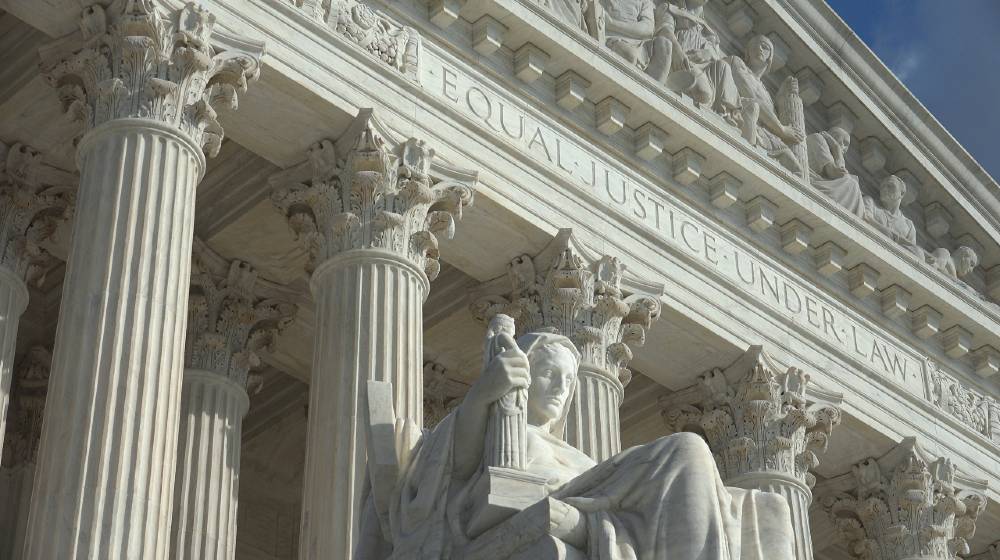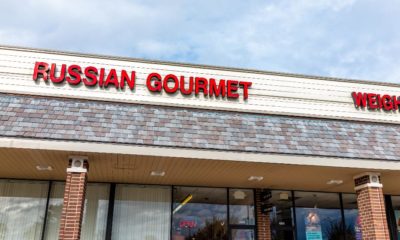Press Release
High Court Backs Businesses Challenging California Labor Law

The Supreme Court on Wednesday sided with California agriculture businesses that objected to a state regulation giving unions access to farm property in order to organize workers.
RELATED: SC Rejects Latest Republican Challenge To Obamacare
High Court Backs Businesses Challenging California Labor Law
As a result of the ruling, the businesses' attorney said, California will have to modify or abandon the regulation put in place in 1975 after the efforts of labor leader Cesar Chavez.
The justices ruled 6-3 along ideological lines for the agriculture businesses. It's another potential setback for unions as a result of a high court decision.
“The access regulation amounts to simple appropriation of private property,” Chief Justice John Roberts wrote for the conservative members of the court. Roberts said the regulation “grants labor organizations a right to invade the growers’ property.”
At issue was a California regulation that allows unions access to farms and other agriculture businesses for up to three hours per day, 120 days per year, in order to organize workers.
Businesses are supposed to be notified before organizers arrive, and organizers are supposed to come during non-work times such as lunch and before and after work.
Two agriculture businesses had challenged the regulation saying it had the effect of taking their property without compensation in violation of the Constitution. The businesses also said the regulation was outdated and unnecessary given that unions can now reach workers in many ways, including via smartphone and radio.
Writing for the majority, Roberts rejected the suggestion that the ruling would “endanger a host of state and federal government activities involving entry onto private property.”
But writing for the three-justice liberal minority, Justice Stephen Breyer said “the majority’s conclusion threatens to make many ordinary forms of regulation unusually complex or impractical.”
Breyer wrote that he would have concluded that California's regulation did not take anything but instead “regulates the employers’ right to exclude others.”
Breyer noted the “large numbers of ordinary regulations” that permit the temporary entry onto a property owner's land. That includes entry for inspections ranging from food product safety like meat and dairy facility inspections to the inspections of nursing homes, preschools, and foster care facilities.
“I suspect that the majority has substituted a new, complex legal scheme for a comparatively simpler old one,” he wrote.
The ruling is the latest hit to unions by the court under Roberts. In 2018, the court’s conservative majority overturned a 41-year-old pro-union decision that had allowed states to require that public employees pay some fees to unions that represent them, even if the workers choose not to join.
Still, it’s unclear how much will change as a result of the court's ruling.
The access regulation in particular is unique to California. And the state had said that union organizers use the regulation “sparingly” — only five times in the 2019-2020 budget year and 24 times in 2018-2019.
Still, the United Farmworkers of America told the justices that the regulation is more necessary now than ever. The union said farmworkers are increasingly indigenous workers from Mexico and the only effective way to communicate with them is in person at their job sites.
In court documents filed before President Joe Biden took office, the Trump administration had urged the justices to side with the businesses. The Biden administration later changed the government’s position.
The case the justices ruled in involved Fowler Packing Company in Fresno, which ships grapes and citrus, and Cedar Point Nursery in Dorris, which grows strawberry plants for commercial growers.
Union organizers used California’s regulation to go on to Cedar Point’s property in 2015. That same year, union organizers complained Fowler Packing Company interfered with their ability to access company property for three days. That complaint was later withdrawn.
In a statement, Joshua Thompson of the Pacific Legal Foundation, who argued the case for the businesses at the high court, called the ruling a “huge victory for property rights.”
“Today’s decision affirms that one of the most fundamental aspects of the property is the right to decide who can and can’t access your property,” he said.
The case is Cedar Point Nursery v. Hassid, 20-107.
You Might Also Like:
- Buffett Gives $4.1B, Resigns As Gates Foundation Trustee
- FDA To Add Heart Warning To Pfizer, Moderna Vaccines
- Ladies, Start Your Engines. Get Your Business On The Road To Success
Keep up to date with the latest finance news by following us on Facebook and Instagram.
Article Source: NewsEdge
















1 Comment
The land owner should be the only person who grants or denise who comes on his/her property . Government taking more of our rights away.